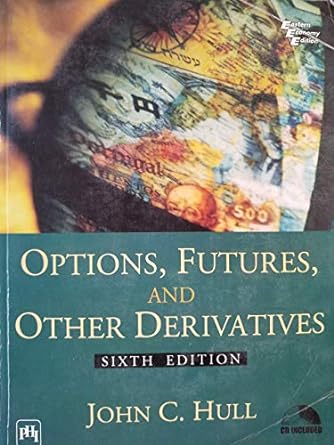Consider the situation in Merton's jump-diffusion model where the underlying asset is a non-dividend-paying stock. The average
Question:
Consider the situation in Merton's jump-diffusion model where the underlying asset is a non-dividend-paying stock. The average frequency of jumps is one per year. The average percentage jump size is 2% and the standard deviation of the logarithm of the percentage jump size is 20%. The stock price is 100, the risk-free rate is 5%, the volatility, provided by the diffusion part of the process is 15%, and the time to maturity is six months. Use the DerivaGem Application Builder to calculate an implied volatility when the strike price is 80, 90, 100, 110, and 120. What does the volatility smile or skew that you obtain imply about the probability distribution of the stock price.
AppendixLO1
Fantastic news! We've Found the answer you've been seeking!
Step by Step Answer:
Related Book For 

Question Posted:






